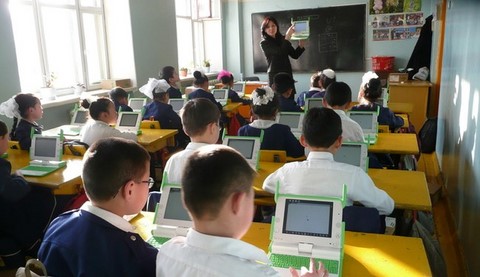Using E-Learning In Education – Benefits Of Itc In The Classroom
Preparation:
Course organisers will send a list of materials related to the course topic to the participants. They can read it in order to prepare for the course. Organisers will assist the participants if they need information related to the accommodation, flight tickets, etc. It is recommended that the participants sign up to tools such as Kahoot, Socrative, Khan Academy, etc. before attending the course. Participants should also bring their smart phones or tablets or laptops.
Course description
In recent years, several studies and reports have highlighted the opportunities and the potential benefits of information and communication technologies (ICT) for improving the quality of education. Additionally, in Europe, appropriate use of ICT in school education is considered a key factor in improving quality at this educational level. The European Commission is promoting the use of ICT in learning processes through its eLearning Action Plan, one of the aims of which is “to improve the quality of learning by facilitating access to resources and services as well as remote exchange and collaboration” (Commission of the European Communities 2001, 2). Although technology is being integrated into education, its use for teaching and learning still remains a challenge. Despite the fact that many schools today are privileged to have ready access to technology, trained teachers, and a favourable policy environment, the use of technology in the classroom is still low. The course focuses on all the various opportunities for using E-learning in education. Trainees will improve their theoretical knowledge and expertise in the area of digital classroom. They will also have a chance to see and try many different methods with ICT in education. They will also see how to adapt existing tasks and assignments in a way that they suit the needs of mixed ability classes. They will discuss how to experience and perform different roles. Trainees will also learn how to engage students of different profiles in education process through digital classroom.
Methodology:
The methodological approach implicates:- Team – Building Sessions;
- Role – Play
- Ice – Breaking and Warm – Up Sessions;
- Energisers
- Group Discussions;
- Debates;
- Creation of individual learning pathway for the learners;
- Problem – Solving Activities;
- Project – Solving Activities
- Inquiry – Based Activities
- Questioning;
- Goal – Setting sessions;
- Decision – Making Sessions;
- Action – Based Strategies;
- Brainstorming;
- Star bursting;
- Planning an Structuring;
- Negotiation and Persuasion;
- Self – Motivation Sessions;
- Questionnaires
Objectives
- Improving teaching skills
- Improving communication skills
- Learning how to work in a group
- Provide teachers with practical ideas for how they can incorporate technology into their existing lessons
- Getting teachers familiar with current Internet trends and how they can be applied in the creation of an e-lesson
- Familiarize teachers with the uses and functions of the Moodle platform
- Familiarize teachers with different opportinuties of how to use Google
- Allow teachers to create their own controlled test courses on the Moodle platform
- Provide teachers with the skills and knowledge necessary to create and implement their own e-learning platform
- Improvement at the level of key competences and IT skills
- Being familiar with apps/platforms that can be used in school to enhance students' motivation
- Enhancment of digital literacy
- Learning how to use Kahoot and Socrative and implement quizzes in the classroom
- Learning how to implement Information and Communication Technologies’(ICT) in teaching and learning
- Improvement of language and communication skills
- Internationalisation at the level of education
- Enhance diversity and intercultural awareness, critical thinking and cyber media literacy
- Improvement of language and communication skills
- Networking with teachers from various European countries
Follow-up
Trainees will be given soft and hard copies of all lesson materials, which they can present to their colleagues at their own organizations to generate interest in the strategies learnt during the training course. In addition, a mailing list of participants will be created in order to exchange ideas/experiences. Self-evaluation materials will be provided. At the end of the course the participants will fill in a questionnaire in order to get a detailed feedback for the effectiveness of the training event.
Programme of training activities day-by-day:
Day 1 – MONDAY
- Welcome and registration;
- Introduction to ICT in education
- Teachnology and Education – how to maximize learning potential by using technology
- Key terminology of digital classroom
- Teacher and Google – Who is better 21st century educator – Critical debate
- How to implement E-learning in classroom in different subjects
- Introduction to Moodle;
- Creating a lesson in Moodle
- Advantages and Disadvantages of Digital Classroom
Day 3 – WENDESDAY
- How to start a lesson with digital activities: Ice-breakers, energisers and warm-ups
- Using blogs in the classroom
- Wordpress
Day 4 – THURSDAY
- Introduction to Weebly
- How to create web page in Weebly
- Google in classroom – how to use it
- How to make digital environment in school
Day 5 – FRIDAY
- Technology as a vehicle for learning;
- Useful educational programmes online: Kahoot, Quizizz and other programmes
- Quizzes, exams and tests online
Days 6/7 – SATURDAY and SUNDAY Workshops and Cultural/Sightseeing Activities
Day 8 – Monday
- Workshop: Digital learning in my subject
- E- learning can be fun
Day 9 – Tuesday
- Benefits of E-learning
- Using technology in the classroom revised
Day 10 – Wednesday
- Feedback, course evaluation and dissemination focus
- Your 6 month plan to implement your new knowledge and skills in your teaching context
- Reflection and self-evaluation
- Certificate of attendance awarding





